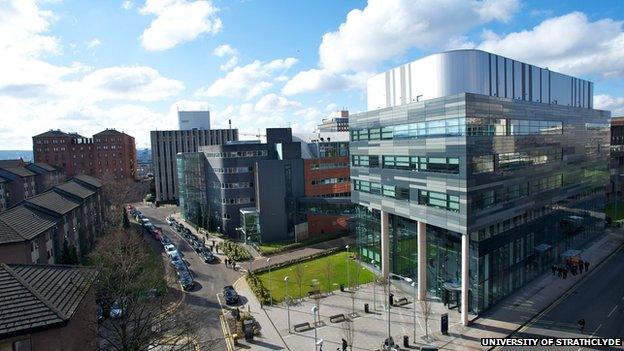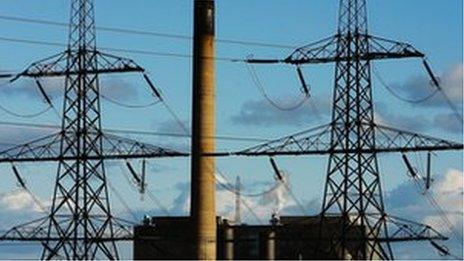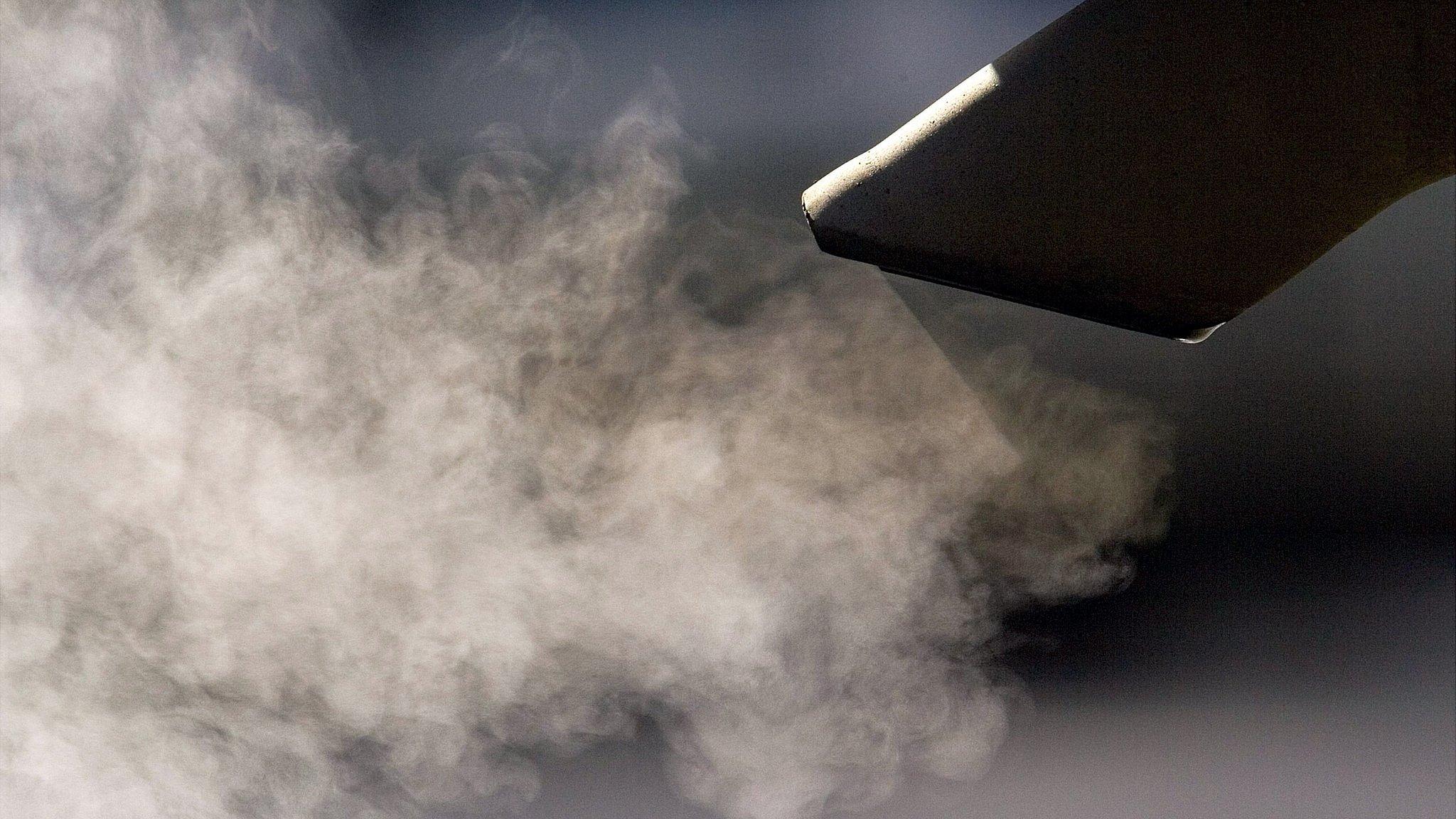Scottish universities given funding for low carbon projects
- Published

Strathclyde University's project will link the campus to major energy users in the area
Three Scottish universities are to receive £20m as part of a scheme to help Scotland meet its carbon emission reduction targets.
Strathclyde, Stirling and St Andrews universities will be given the Scottish government funding to build a number of new projects.
It is hoped the work will encourage other bodies to develop low carbon heating technologies.
The money has been allocated through the Scottish Funding Council (SFC).
St Andrews University will receive £10m for a wood-fuelled biomass project at Guardbridge in Fife.
The plant will produce hot water to be pumped four miles underground to heat and cool laboratories and residences in the university.
Strathclyde University will receive £8m to construct a combined heat, power and district energy network, linking Strathclyde's campus with major energy users in the area.
A further £2m will be given to Stirling University for the installation of a combined heat and power plant to serve its main campus.
Education Secretary Michael Russell said: "Today's announcement further underlines both the value of our universities in leading research and innovation, and Scotland's ambitions for low carbon energy.
"Investment for these three universities will not only contribute to reducing our carbon emissions, their work will offer other bodies the opportunity to learn from their work, develop their own projects and further enhance Scotland's global reputation in this area."
'Important step'
SFC chief executive Laurence Howells said: "These are exciting investments with huge potential, not least because they tap into the world-leading knowledge within our universities and allow them to show what the future could be for carbon reduction in Scotland.
"We see this as an important step forward but recognise there is still much more to be done. No-one can be complacent about protecting our environment."
The investment was welcomed by environmental groups.
Gina Hanrahan, of WWF Scotland, said: "The public sector has a pivotal role in helping to turn low carbon ambition into action.
"Heating Scotland's buildings and water makes up almost half our total carbon emissions, yet only around 3% of that heating is currently renewable.
"For too long heat has been the forgotten part of our energy mix, but it's an area we need to see strong action on from the Scottish government if we're to tackle climate change and insulate our buildings from rising energy costs and volatile fossil fuel markets.
"Learning from these kind of projects will help to build investor and consumer confidence in low carbon heating."
- Published26 March 2014

- Published24 February 2014

- Published4 February 2014

- Published20 January 2014
- Published15 January 2014

- Published27 November 2013
